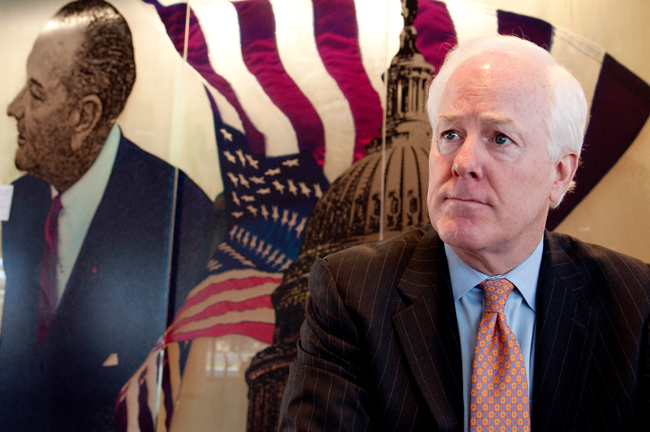Many mass shootings have been highlighted in the news this year, but national leadership generally disagrees on the solution to the problem.
Republicans advocate for more gun rights, such as concealed carry licenses, so people may protect themselves should they find themselves in a crisis situation. On the other hand, Democrats advocate for stricter gun control. This huge gap results in inaction after every mass shooting. However, there is one area in which both sides agree something must be done: mental health.
A considerable portion of recent mass shootings were committed by mentally ill individuals, such as the recent shooting in a movie theater in Lafayette, Louisiana. According to Sen. John Cornyn (R-Texas), boosting access to treatment options would strike at the root of the causes of such tragedies. As such, Cornyn has introduced the Mental Health and Safe Communities Act.
According to files provided by Cornyn’s office, this bill would “increase the use of treatment-based responses for mentally-ill during incarceration and post-release custody” as well as “enhance information sharing to strengthen existing background check system without expanding it.”
Currently, many people with mental health problems are barred from purchasing firearms. However, states are not required to send those records to a FBI-run background check database. This legislation addresses the problem by encouraging states to send those records. States sending at least 90 percent of their records would receive financial incentives, whereas states that do not would receive penalties.
Some opponents of campus carry, which was passed and later signed by Gov. Greg Abbott this past legislative session, claim that the high-stress environment of a university may result in shooting on campus as a result of this law. This legislation should help alleviate this concern.
“[The Mental Health and Safe Community Act] will strengthen programs that promote preventative screening and crisis response training so that we can better understand and treat the factors which may endanger public safety,” Cornyn said in a press release. “By giving our communities the resources necessary to recognize and prevent acts of violence, we not only protect American families, but help those affected by mental illness.”
Additionally, the legislation allows “school officials to use existing federal grant funding to expand the use of Crisis Intervention Teams, who are trained to respond to mental health crises and prevent acts of violence,” according to Cornyn’s office.
“The current lack of available funds for crisis intervention and counseling make it difficult for colleges to prevent a potential crisis situation,” according to Dr. Cynthia G.S. Franklin, UT’s assistant dean for doctoral education and Stiernberg/Spencer Family Professor in Mental Health “Legislation that increases federal funds to provide more crisis intervention on college campuses could make a big difference to the outcomes. Instead of a crisis like a shooting or suicide provoking an after response, a crisis intervention team would be available to prevent the crisis.”
The text of the legislation has not been released yet, but the framework is encouraging. Additionally, its chance of passage appears optimistic, as it has been endorsed by organizations from across the political spectrum, including the National Rifle Association, National Alliance on Mental Health, National Association of Social Workers and others. Hopefully, with the passage of this legislation, this country will see fewer mass shootings and UT students with mental illness will be prevented from purchasing firearms.
Hung is a second year law student from Brownsville.





















